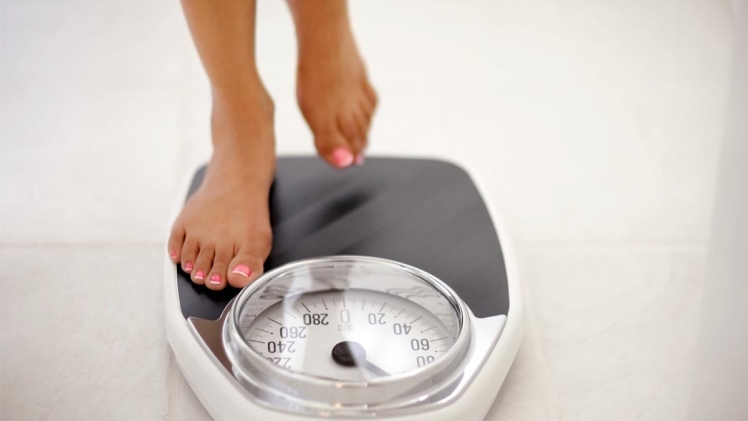Hormone replacement therapy (HRT) can be a game-changer for many individuals navigating the challenges of hormonal imbalances. However, like any medical treatment, it has potential side effects and considerations. One such concern is weight gain and its impact on overall health. This article dives into the relationship between weight gain on hrt and how individuals can manage their health effectively.
Understanding Menopause and Weight Gain: It’s Not Just Hormones
First, it’s important to debunk a myth: menopause doesn’t directly cause weight gain. The culprit is more likely to be a combination of factors like:
Age-related muscle loss: As you age, your bodies naturally lose muscle mass, which burns fewer calories at rest. This can lead to gradual weight gain without a diet or exercise change.
Lifestyle shifts: Life in your 40s and 50s can be busy! Juggling work, family, and personal commitments can make healthy habits like regular exercise and conscious eating fall by the wayside.
Stress: Chronic stress is a sneaky culprit. It can elevate cortisol levels, a hormone that promotes fat storage, particularly around the belly.
Menopause does play a role, though. The hormonal changes can affect how your body distributes fat. You might notice a shift from fat stored primarily in the hips and thighs (pear-shaped) to a more central accumulation around the abdomen (apple-shaped). This visceral fat is linked to a higher risk of specific health problems.
HRT and Weight: Friend or Foe
Here’s where things get interesting. Research on the link between HRT and weight gain is mixed. Some studies suggest minimal to no impact, while others show a possible slight increase or decrease in weight depending on the type and dosage of HRT.
The key takeaway? It isn’t a wonder for weight loss, but it likely won’t cause significant weight gain either. Some studies suggest estrogen-based HRT helps with belly fat distribution and improves insulin sensitivity, potentially aiding weight management.
The Bigger Picture: HRT and Your Overall Health
Weight gain is a concern, but it’s just one piece of the puzzle. It offers a range of advantages that can significantly improve your quality of life, including:
Relief from menopausal symptoms: Hot flashes, night sweats, vaginal dryness, and mood swings can be disruptive and frustrating. It offers effective relief for many women.
Stronger bones: Estrogen plays a crucial role in bone health. It can help prevent osteoporosis, which weakens bones and increases fracture risk.
Improved cognitive function: Studies suggest it may help with memory, focus, and concentration, which can decline during perimenopause and menopause.
Reduced risk of heart disease: It may offer some protection against heart disease, a leading cause of death in women.
Making Informed Decisions: Talking to Your Doctor
The decision to pursue HRT is personal, and there’s no one-size-fits-all answer. Here’s how to have a productive conversation with your doctor:
Discuss your symptoms: Be transparent about the specific challenges you’re facing during perimenopause or menopause.
Explore your health history: Certain medical conditions might make it unsuitable.
Weigh the risks and benefits: Discuss the potential side effects of HRT and its benefits for your overall health and well-being.
Find the right fit: It has different types and delivery methods. Your doctor will help determine the best option based on your needs and preferences.
Keep in mind, it’s a journey, not a destination. You can track your progress with your doctor and make necessary adjustments to the dosage or type of HRT to ensure it remains effective for you.
Living a Healthy Life Alongside HRT:
While it can be a powerful tool, it’s not a substitute for healthy lifestyle habits. Here are some tips to support your well-being alongside HRT:
Move your body: Regular exercise, even moderate-intensity activities like brisk walking, can help with weight management, mood, and overall health.
Fuel your body right: Focus on a balanced diet rich in fruits, vegetables, whole grains, and lean protein.
Manage stress: Stress can seriously impact your health. Discover relaxation techniques such as yoga, meditation, or deep breathing to manage and reduce stress levels.
Prioritize sleep: Get 7 to 8 hours of quality sleep every night. Sufficient sleep is important for both physical and mental well-being.
Summing it Up:
Navigating hormone replacement therapy can be a transformative journey for many individuals seeking relief from hormonal imbalances. While weight gain on hrt itself is a potential side effect, it’s essential to approach it within the context of overall health and well-being. By adopting a balanced lifestyle that includes a healthy diet, regular exercise, adequate sleep, and close monitoring of hormone levels, individuals can effectively manage their weight and optimize their health during hormone replacement therapy.

